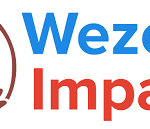About Company
Overview
-
What they do: Wezesha Impact is a Uganda‑based non‑profit social venture serving youth (ages ~15–30), focusing on developing entrepreneurship, employability, and leadership skills to create jobs and improve employment outcomes
-
Model: They use the W.I.S.E. (Wezesha Impact Skills & Enterprise) model:
-
Empower youth through entrepreneurship and work‑readiness skills
-
Support youth‑led enterprises to survive, grow, and hire peers
-
Partner with TVET centers to scale and replicate
-
Impact Highlights
-
Reach: Over 15,000 youth in Uganda served to date, with 58% being female.
-
Employment outcomes: 88% of participants secure employment or start a business—17 percentage points higher than control groups.
-
Economic gains: Graduates earn on average USD 25 more per month (~USD 300 per year), with women’s wages increasing by ~76%; 52% report their wages are adequate vs. 40% of peers.
-
Job creation: Graduates employ nearly one extra worker each (1.8 vs. 0.8), doubling rates of hiring women and youth.
Recognition & Partnerships
-
Partners: Segal Family Foundation selected them as an “Angel for Africa” honoree (2022).
-
Scale: Member of Catalyst 2030 and backed by Rippleworks for organizational scaling.
-
Founders: Co‑founders Solomon Mugambe and James Katumba have earned prestigious fellowships (Acumen, ILO master‑trainer credentials, Hubert Humphrey) and top 40 under 40 recognition.
Vision & Values
-
Vision: “All youth in Africa thrive socially and economically.”
-
Mission: “Equipping youth with skills and tools for entrepreneurship and work.”
-
Core values: Impact-driven, integrity, reliability, passion, innovation.
Summary
Wezesha Impact is a proven youth‑development initiative in Uganda leveraging skills development and enterprise support to boost youth employment, incomes, and entrepreneurship—especially for young women—across ~23 districts in Central, Eastern, and Northern Uganda. Their success is backed by robust external impact evaluations and strong partnerships that validate their scalable and replicable model.
